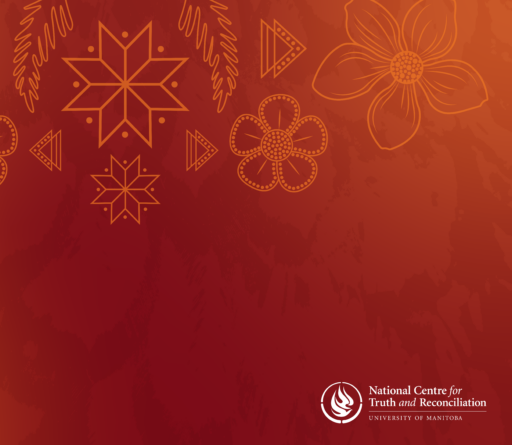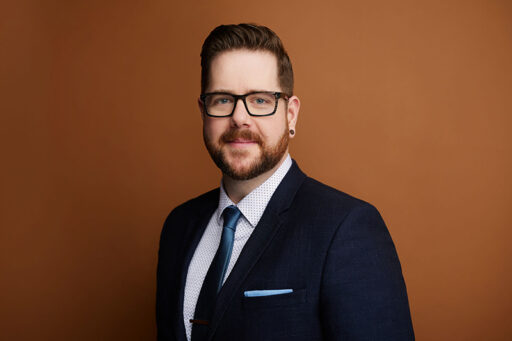College Blog
With the National Day for Truth and Reconciliation approaching, I want to pause to reflect on the ongoing trauma caused by Canada’s residential school system. On September 30, we remember the children who never returned home, and honour survivors, their families and their communities.
Whether personally or institutionally, we are all at a unique place in our journey to confront the painful truth of Canada’s past and commit to meaningful reconciliation.
This blog will provide some updates on what we are doing as a College to make progress on this commitment, but before taking the institutional lens, I want to share some of my own reflections as I seek to deepen my understanding of the history of Indigenous Peoples in Canada and the land that I live on.
Place Where the Alders Grow
I grew up in Etobicoke, a former city unto itself, but now a district of Toronto. More specifically, I grew up in a community called Long Branch which occupies the southwestern corner of Etobicoke, right where Etobicoke Creek and Lake Ontario meet.
I couldn’t begin to tell you how much time I spent playing on the waterfront or journeying up and down Etobicoke Creek, climbing riverbanks and moving through the forests lining the waterway.
Growing up, I took this land for granted and never once considered how the Indigenous Peoples who have called Long Branch home for thousands of years related to what was my home. Now, the territorial acknowledgements we open our meetings with challenge us to dig deeper and go beyond mere acknowledgement.
I now know that the community in which I grew up, would have been a critical space for the Indigenous Peoples who walked, hunted, fished, gathered, and celebrated on this land. The juncture between Etobicoke Creek and Lake Ontario would have supported water-based travel and provided a source of food. What is now the modern colonial road of Lakeshore Boulevard, which cuts through Long Branch, reflects historical travel routes that followed the shorefront and connected different waterways.
I now know that this community has been home to many Indigenous Nations, but particularly the Mississaugas of the Credit. Etobicoke stems from the Mississauga word “wah-do-be-kang” (wadoopikaang) meaning “the place where the alders grow”, reflecting the local trees that still grow in our community today. I have learned that the land I called home was never originally intended to be captured in Treaty 13 or “The Toronto Purchase” but was later included in the Treaty without consent.
I share these reflections, not because they are complete, but because they reflect my own personal journey towards understanding the injustices that took place and that I benefit from. I identify strongly with Etobicoke and am grateful that this land and community has given me a wonderful place to live, grow, play, and raise a family. I hope to continue to deepen my knowledge as I continue to reflect on what it means to share this land and my responsibilities to its traditional stewards.
Regulatory Responsibility
As a regulator, we have an important role to play in combatting anti-Indigenous racism in the health-care system and advancing reconciliation. We acknowledge we are at the beginning of this work. As we embark on this journey, our focus has been on building a deeper awareness and understanding of our collective history, so that we can move toward action with sincerity, humility and a true understanding of the need to do this work.
Over the past several years, the College has participated in several Indigenous-lead trainings – both at the Board and the staff level. These have included a blanket exercise, Indigenous Cultural Safety Training, and education on the Community Rehabilitation Worker program, which serves communities on Treaty 5 and Treaty 9 land in the northern part of the province.
Part of our September Board meeting will focus on the Truth and Reconciliation Commission’s Calls to Action and how they apply to our regulatory work. We’re thankful to have Ridge Road Training & Consulting joining us to facilitate that discussion.
We’ll also hear from a speaker from the British Columbia College of Nurses and Midwives, who will share learnings from the development of an Indigenous Cultural Safety, Cultural Humility, and Anti-Racism Standard by that College.
We’re in the early stages of discussions about potentially creating a similar standard. Our aim is to provide clear guidance in this area and support physiotherapists in the delivery of safe and equitable care.
We know an essential part of this work is building relationships. We continue to identify opportunities to meaningfully engage with Indigenous health-care providers and communities to learn more about how regulatory processes and guidance impact them and how we can make changes that respond to their experiences and needs. We understand that fostering these connections requires time, humility and demonstrated authenticity.
We are deeply grateful to everyone who has engaged with us in this process so far and value your input as we continue this work. You can reach me anytime at croxborough@collegept.org
We’ve also included a list of resources below that you may find helpful on your own learning journey.
Resources
Resources to Support Practice and Ongoing Learning for Culturally Safe Care
This collection of tools, courses, and practical documents, developed by physiotherapy professionals and health-care workers across Canada, is designed to support culturally safe care and health equity. Many of the resources were created in collaboration with Indigenous Elders, Knowledge Keepers, and communities. The list was curated by the Canadian Physiotherapy Association in partnership with members of the Global Health Division’s Indigenous Health Subcommittee and Dr. Stacey Lovo.
Indigenous Cultural Safety, Cultural Humility and Anti-Racism: Practice Standard Pocket Guide
This short guide from the College of Physical Therapists of British Columbia outlines practical actions physiotherapists can take to provide culturally safe and anti-racist care for Indigenous patients. It covers self-reflective practice, strengths-based and trauma-informed approaches, and physiotherapists’ role in creating healthcare spaces where the holistic needs of Indigenous patients are met.
Indigenous Health and Wellness, Advocacy, and Allyship Course
In this course from Athabasca University students will learn about systemic anti-Indigenous racism and discrimination in health care along with strategies for becoming an authentic ally and confronting health and social inequities.
Topics range from exploring what it means to be Indigenous to specific Calls to Action focused on health care.
Support is available for survivors of residential schools and their family members. Access emotional and crisis referral services by calling the 24-hour National Indian Residential School Crisis Line at 1-866-925-4419.











Share Your Thoughts